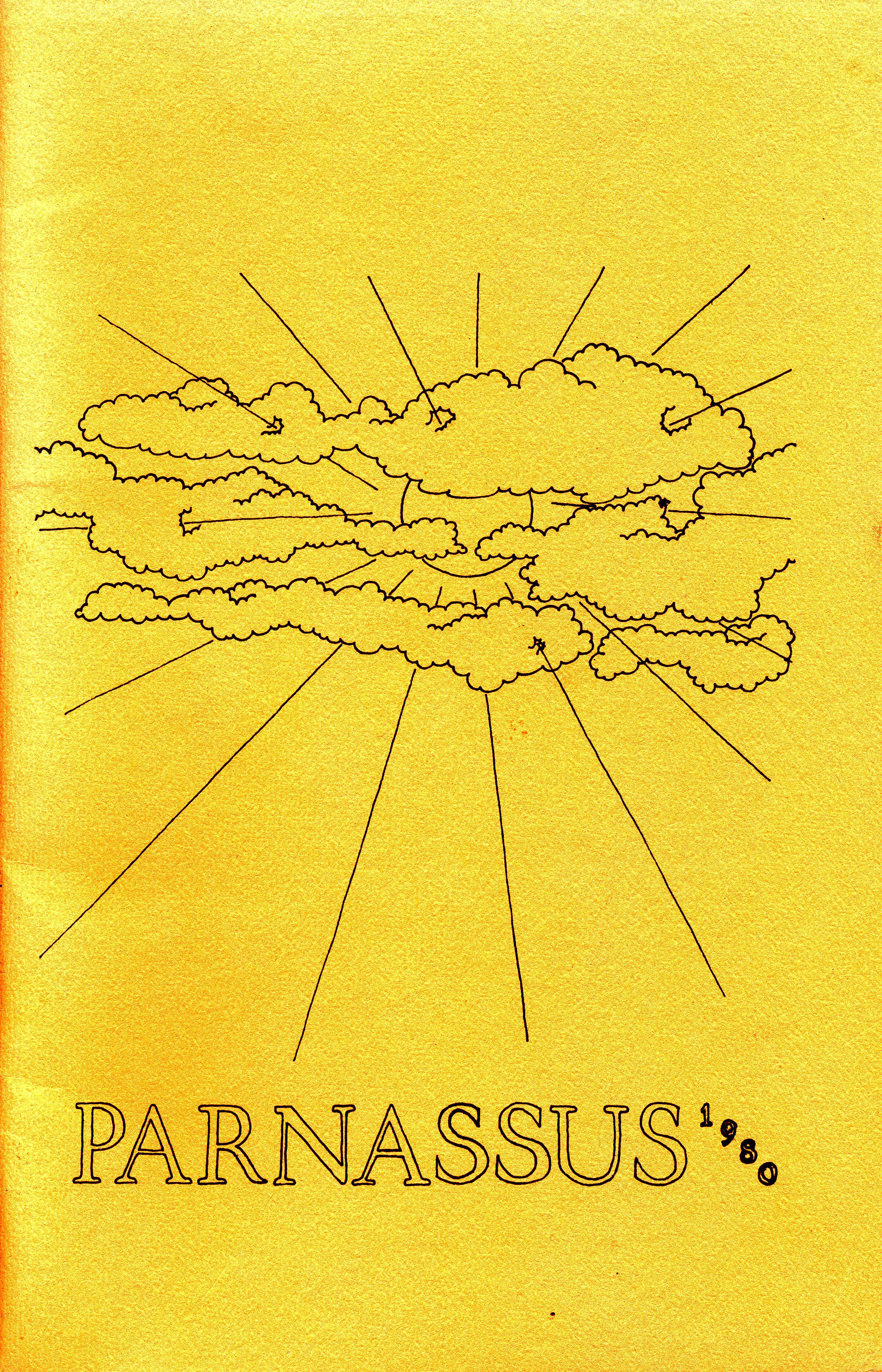Volume 1980 Parnassus
Forward
The theme poem for the 1980 Parnassus, the first since 1973, is John Gillespie Magee’s “High Flight.” This poem for this literary magazine symbolizes the attempt of the poet, writer, and artist to transcend time and place—“to slip the surly bonds of earth”—and to perceive the world from the perspective of sun and clouds. This perception goes past appearances to reality and past the particular to the universal. However, art involves not only perception but also perspective or point of view. The poet responds emotionally and subjectively to what he experiences: he climbs and joins “the tumbling mirth of sun-split clouds.” Wordsworth characterized this dimension of poetry as the “spontaneous overflow of powerful feelings.” The truth of poetry, not unlike that of science, comes from subjectivity not objectivity. It is, in fact, this subjective involvement of the poet that helps achieve the objective of all art—an aesthetic experience of truth—“touching the face of God.”
The bulk of the creative material for the 1980 Parnassus is the result of student response to the Parnassus Literary Contest. The success of this original endeavor can be measured not only by the excellent response of the student body but also by the enthusiasm and excitement which the contest generated. Students competed in three categories—poetry, short story, and essay. The winners of this contest are acknowledged at the end of the publication.
Also, to be acknowledged for their contribution to Parnassus are the members of the editorial staff. David Reiman and Susan Shank served as co-editors. Martha Palmer served as design editor, and both she and Richard Richmond as contributing artists. Kent Rhodehamel assumed the major responsibility for lay-out, and the indefatigable Rhonda Gretillat, despite all her responsibilities in the English Office, typed the script. Merci.
Full Issue

Editors
- Editorial Staff
- David Reiman
- Susan Shank
- Martha Palmer
- Advisor
- Dr. Ken Swan
Copyright
All texts and images copyright of their respective owners.

